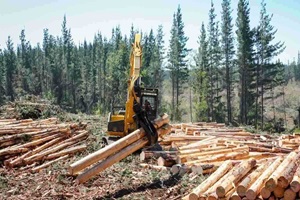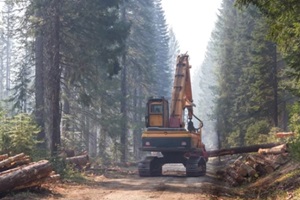
Many things can go wrong during a logging project, but among them, companies facing liability for their actions are among the most common. Logging company executives and managers—particularly those responsible for risk management and legal compliance—must understand the importance of forestry insurance and liability coverage in their industry.
Without this knowledge, your company could face significant legal and financial trouble. Strong liability insurance is the cornerstone of a smart insurance strategy in forestry.
Here are the basics to help you understand why logging companies need liability protection and how to identify a good policy that serves your needs.
Comprehending Liability Insurance
It is essential to know what liability is and to understand why liability insurance is non-negotiable. The term “liability” refers to being responsible for something, such as an accident or damage. When a company is found liable, its responsibility is to resolve the situation—typically by making the other party financially whole.
For forestry companies, liability poses a significant risk due to the scope of potential dangers. Rarely does a forestry accident result in only negligible damage; heavy machinery, sharp tools, and timber weighing up to multiple tons can wreak havoc anytime things go wrong. This means that the resulting costs are often substantial as well.
Common Liability Risks in Logging
While every work site is different, and accidents may occur in various forms, some types of liability are more common than others. These include:
- Workplace accidents and injuries
- Environmental damages
- Property damage to third parties
Whether an employee is injured while operating a saw, a truck leaks oil and pollutes the land tract, or a piece of timber escapes the hauling truck and hits a car, the logging company would be liable to pay for remediation or resolution out of pocket without insurance coverage.
Legal and Financial Implications
The costs of addressing a forestry liability claim are not solely confined to repairing what was damaged. Companies may also expect:
- Potential lawsuits and legal fees
- Compensation and settlement costs
- Impact on business reputation and operations
For instance, suppose that your forestry company experienced a severe oil leak from a piece of machinery that impacted a nearby waterway. Your business could be liable for the remediation costs—which run anywhere from tens of thousands to almost a million dollars, on average—to remove the oil and restore the water to good condition.
Your company may be sued for this pollution, incurring legal fees to maneuver through the court process or settle. When potential business partners hear that your company was responsible for such a significant mistake, they may choose not to work with you in the future because your reputation has been tarnished, costing you work opportunities and, consequently, money.
Components of Strong Liability Insurance
Liability insurance is a mandatory part of operating a forestry business. However, you should not simply select the cheapest or first policy you find. Strong liability insurance is made up of:

- Complete coverage options – Good liability insurance will address multiple types of liability, from harm caused to people to property damage. The exact coverages should be personalized to the situations in which your business operates most frequently.
- Adequate coverage limits – Liability insurance will do little good if it only pays a few thousand dollars in case of a claim. Be sure the policy contains appropriate coverage limits that could actually cover a claim if one occurs.
- Inclusion of legal defense costs – Not all liability insurance policies include legal defense support. However, this aspect is essential to keeping your business solvent if a lawsuit arises.
By investing in a strong liability insurance policy, forestry business owners can enjoy protection against unexpected financial burdens and look forward to uninterrupted business continuity that is not hampered by lawsuits or significant costs. The peace of mind for business owners and managers is irreplaceable.
Protect Your Logging Company With Burton & Company
It is essential to select liability insurance coverage personalized to your needs to keep your business resilient, given the many risks that forestry businesses face daily. The experts at Burton & Company have long-standing expertise in forestry insurance. They can help you identify the most at-risk areas in your business operations.
Our customized liability insurance solutions allow you to cover your most pressing vulnerabilities without paying for coverage that you will never use. Contact Burton & Company for a personalized consultation to get your forestry business on the right page for liability coverage, whether you need general protection, a higher-than-average limit, or something else.

